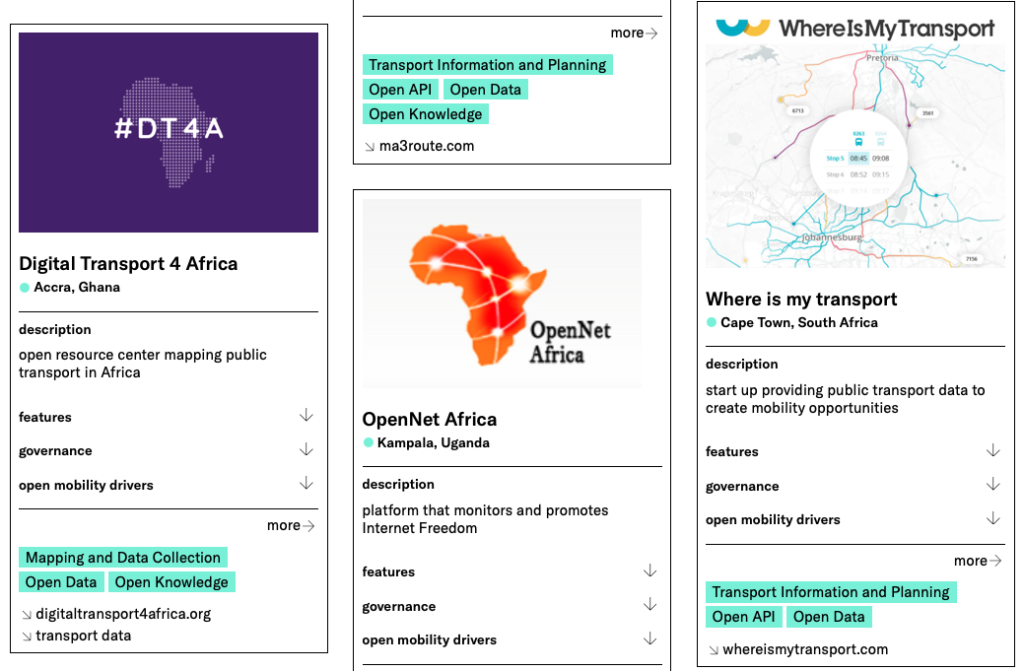The aim of our new tool is to inform and inspire policymakers, practitioners, technologists, and researchers working at the intersection of mobility, governance, innovation, and technology in a timely, digestible and comprehensive manner. The knowledge provided throughout Cases spans mobility topic areas from access to ICT, enabling networks, and mapping, to data collection, transport information and planning, and MaaS solutions. Our first focus was put on Sub-Saharan Africa and mobility cases highlighting open approaches. In doing so we want to shed light on the diversity of openness throughout the mobility sector to identify scaleable governance concepts or digital ecosystem components.
What have we learned from looking at these diverse examples?
Open Mobility in Sub-Saharan Africa is not only limited to clear open data and open source schemes, such as Digital Matatus and Jungle Bus, but involves many nuanced projects, initiatives and institutions working to create open conditions or enable community participation in order to design and steer innovations according to real local needs. As global players throughout mobility (such as Uber) rise and leave their marks in emerging markets it is the more important to „decolonize“ innovations and startups in SSA. On the other hand the impacts on social aspects of labour through digital innovations can foster personal economic growth of people who had to live of informal precarious employment without any social coverage. Nevertheless, these formerly informal forms of mobility are essential modes of local transport (such as Matatus, Moto-taxis and Boda-bodas) that can develop as sustainable modes with the right use of and access to technology.
How does the Cases tool work?
The Cases repository can be used to find practice examples for open approaches throughout the mobility sector in Sub-Saharan Africa. You can filter all entries according to type and mobility domain as well as to open resources offered by the case. Currently, the repository features 50+ cases mostly based in SSA. It will grow with the process of the project and in the future will include other perspectives such as for example open approaches in Smart Cities.
